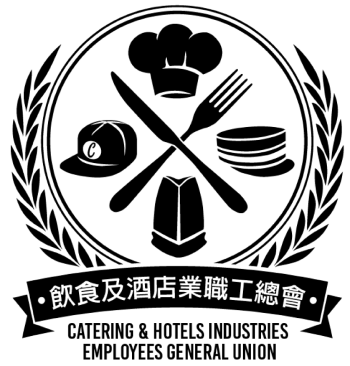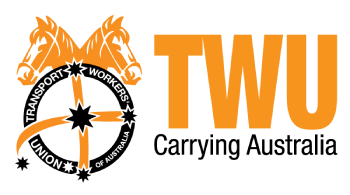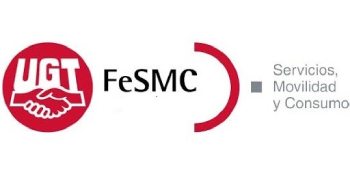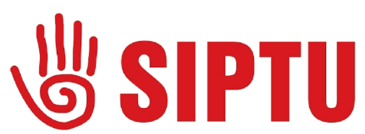Deliveroo workers around the world are uniting to demand #Rights4Riders
Deliveroo’s profits soared during the pandemic because of the tireless efforts of frontline delivery workers. Now Deliveroo is looking to cash-in with a multi-billion dollar IPO on the London Stock Exchange, but their riders still lack basic rights.
Riders have raised serious concerns including low pay, sham contracting, unfair deactivations, dangerous working conditions and a lack of social protections.
This is a risk not only for the lives and livelihoods of Deliveroo riders. This is also a risk for investors who face growing legal, reputational and financial risks if Deliveroo doesn’t change the course of its predatory business model.
SEND A LETTER TO DELIVEROO CEO WILL SHU AND SHARE THIS PAGE
ADD YOUR NAME
Tell Deliveroo to Deliver #Rights4Riders
Attn: Will Shu, Deliveroo CEO
cc: Financial Conduct Authority, UK
I am dismayed by your attempt to capitalise off the sacrifices of frontline delivery workers.
Deliveroo’s profits have soared during the pandemic. Now you and your early investors look to pocket billions with an IPO on the London Stock Exchange, while the riders feeding our cities are struggling to feed their own families.
Deliveroo owes an enormous debt to its riders. Riders who are forced to work without adequate safety equipment or access to sick leave. Riders who have been seriously hurt or killed on the job. Riders who are paid poverty wages. And riders who are constantly pushed to work faster or longer, risking their own safety with the ever looming threat of deactivation.
Despite attempts by Deliveroo and other gig economy companies to misclassify riders, courts – including the UK and French Supreme Courts – are increasingly recognising direct employment relationships.
And investors are increasingly seeing the legal, reputational and financial risks posed by predatory business models in the gig-economy.
JustEat, one of your major competitors, has agreed that workers should no longer be misclassified as independent contractors. It’s time for you to take responsibility and reverse Deliveroo’s policy that treats riders as second-class workers.
It’s time that Deliveroo stops sham contracting, paying poverty wages, compromising riders’ safety, unfairly terminating riders and ignoring their basic labour rights.
P.S. I’m also sending this to the UK’s Financial Conduct Authority. We think they need to see this.
6 Critical Issues with Deliveroo’s
Business Model
According to a global survey of labour unrest, Deliveroo is the most protested platform in the world. Investors will face growing legal, reputational and financial risks unless the following critical issues are addressed.
Dutch and Spanish courts ruled that Deliveroo misclassified its workers as independent contractors to avoid responsibility for holiday, sick pay and other employment entitlements. Deliveroo is able to take advantage of weak labour laws, which put the onus on precarious workers to prove that they are not independent contractors. However riders in other countries are also taking Deliveroo to court over this practice and additional judgements on this issue are expected.
Deliveroo brags about their support for charities that fight hunger, but many of Deliveroo’s own riders experience food and housing insecurity. Workers have taken Deliveroo to court in Australia over alleged wage theft. Deliveroo announced plans to double their workforce during the pandemic, which riders described as a “cynical move” to present a positive image of a growing company before its IPO offering. For riders, this hiring spree means less work, lower fees and longer delays for support requests. Riders in Dublin organised a strike in January over “drastically reduced” pay rates.
Solution: Fair pay, including minimum rates and pay for outages and waiting time
Despite being celebrated as key workers for their role delivering essential goods during the pandemic, riders are subject to arbitrary deactivations with no recourse for appeals.
Riders wrote an urgent appeal to Deliveroo CEO Will Shu due to inadequate protection during the pandemic. Recent Deliveroo rider deaths included a 47-year-old father in Italy, a 48-year-old rider originally from Venezuela, a doctor by profession, in Madrid, and a 28-year-old international student in Dublin. The low-wage, piece-rate model of gig work compromises worker safety by pushing riders to constantly work faster and for longer hours.
Deliveroo rider and IWGB member Cristian Santabarbara recently said: “Will Shu could make £350 million from Deliveroo’s initial public offering but still can’t be bothered to ensure our basic rights or even access to restaurant toilets. It’s cowardly to treat frontline workers as disposable, especially after we’ve kept people fed and helped protect the vulnerable in these unprecedented times.”
Solution: Safe working conditions, including access to PPE, sick pay and sanitation facilities
An Italian court determined that Deliveroo’s algorithm discriminated against riders who missed work due to sickness, emergencies and other legally protected grounds.
Deliveroo has ignored calls to recognise riders’ unions, instead spending massive sums to challenge their right to bargain collectively, even though the right to form a union is a bedrock of international human rights. Notoriously anti-union Amazon was the lead investor in Deliveroo’s previous round of financing, which raises serious questions about the future direction of the company. Amazon was recently fined over $60 million for tip-stealing and 20,000 of their workers in the US contracted Covid-19 in conditions that were criticised for being unsafe.
Solution: Recognise the right to form a union and collective bargaining

WHO PROFITS?
BONANZA FOR EARLY INVESTORS
Will Shu, Amazon, and Deliveroo’s early venture capital investors stand to make billions from Deliveroo’s IPO
SCRAPS FOR WORKERS
Despite doing all of the work, riders will get almost nothing; meanwhile, they still lack basic rights and their working conditions are reportedly getting worse
MASSIVE UNCERTAINTY FOR NEW INVESTORS
Investing in an unsustainable model allows early investors to cash out while tying your money to growing risks and rider unrest with Deliveroo, the most protested gig economy platform.
Will Shu will earn between $280m and $910m (7% of shares)
Amazon will earn between $640m and $2.08b (16% of shares)
110,000 riders = almost nothing
*Based on an evaluation of $13 billion (source)
Fact-Checking Deliveroo
NETWORK

Belgische Transportarbeidersbond Union Belge du Transport et de la logistique (Belgium)

Collectif National des Livreurs CGT (France)
Netherlands Trade Union Confederation (Netherlands)

Catering and Hotels Industries Employees General Union, affiliated with the Hong Kong Confederation of Trade Unions (Hong Kong)

Independent Workers Union of Great Britain (United Kingdom)

Transport Workers’ Union (Australia)

Unión General de Trabajadores (Spain)

UILTrasporti (Italy)

Federazione Italiana Lavoratori dei Trasporti (Italy)

Riders x i Diritti (Italy)


English Language Students’ Union (Ireland)

Services, Industrial, Professional and Technical Union (Ireland)

European Transport Workers’ Federation (Europe)
International Transport Workers’ Federation (Global)
CONTACT
Tell us what you think by contacting us. We are eager to connect with fellow riders, customers, restaurateurs, investors and journalists.
Note: By contacting us you agree to receive email messages about the #Rights4Riders campaign and opportunities to get involved. You can unsubscribe from the mailing list at any time. Your email address will not be used for any other purpose. For more information on how the ITF processes your personal data, read our Privacy Policy.